How to Charge a Tesla Model X: A Complete Guide on Charging Speed, Cost, and Range
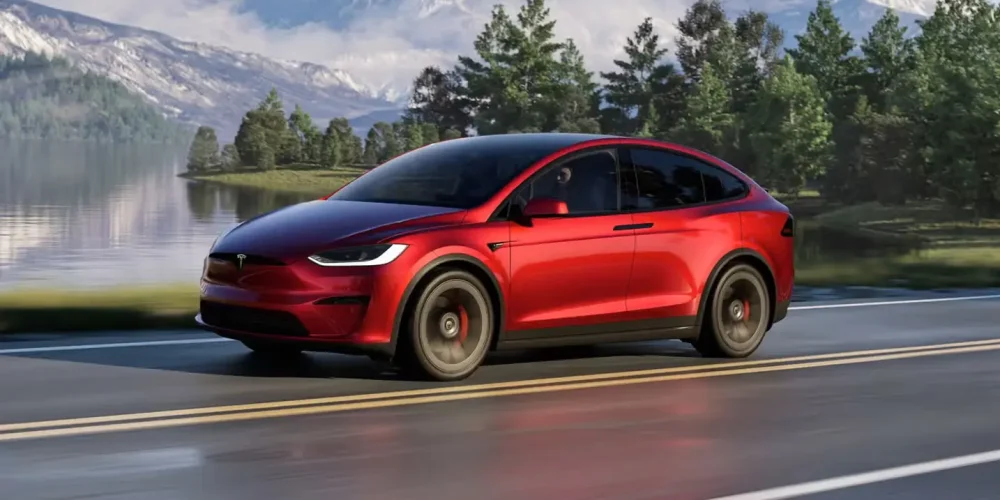
The Tesla Model X is one of the most advanced electric SUVs on the market, offering the perfect mix of luxury, performance, and practicality. When the Tesla Model X was first launched, it became quite a sensation due to its distinctive Falcon Wing doors, spacious interior, and impressive driving range. It quickly became one of the most desired EV SUVs, and ever since, it has remained a favorite among families.
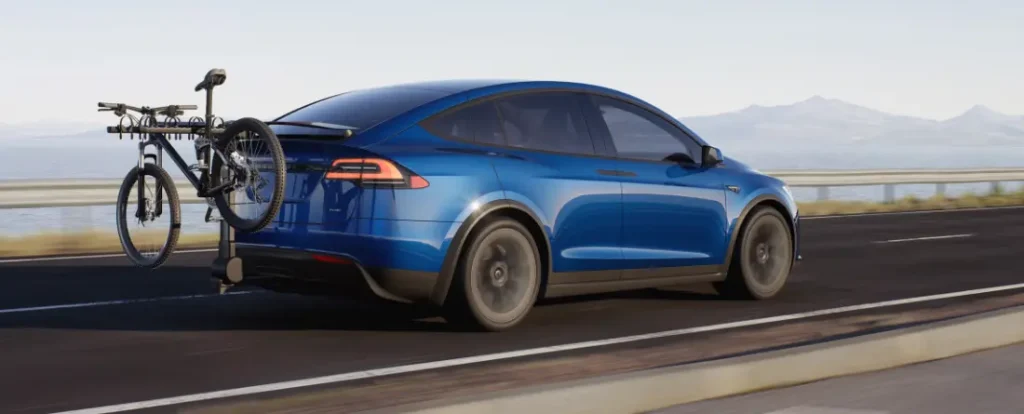
Tesla currently offers two trims: the Model X Long Range AWD and the Model X Plaid. Both models deliver impressive performance: the Plaid excels in acceleration, while the Long Range prioritizes efficiency.
In this guide, we’ll cover everything you need to know about charging your Model X — including battery specs, charging times, costs (including Tesla Model X Supercharger charging cost), and compatible chargers. Whether you’re plugging in at home using a Level 2 Charger or stopping at a Supercharger, this guide will help you understand how to charge a Tesla Model X smarter and faster.
1. Tesla Model X Trims and Performance Specs
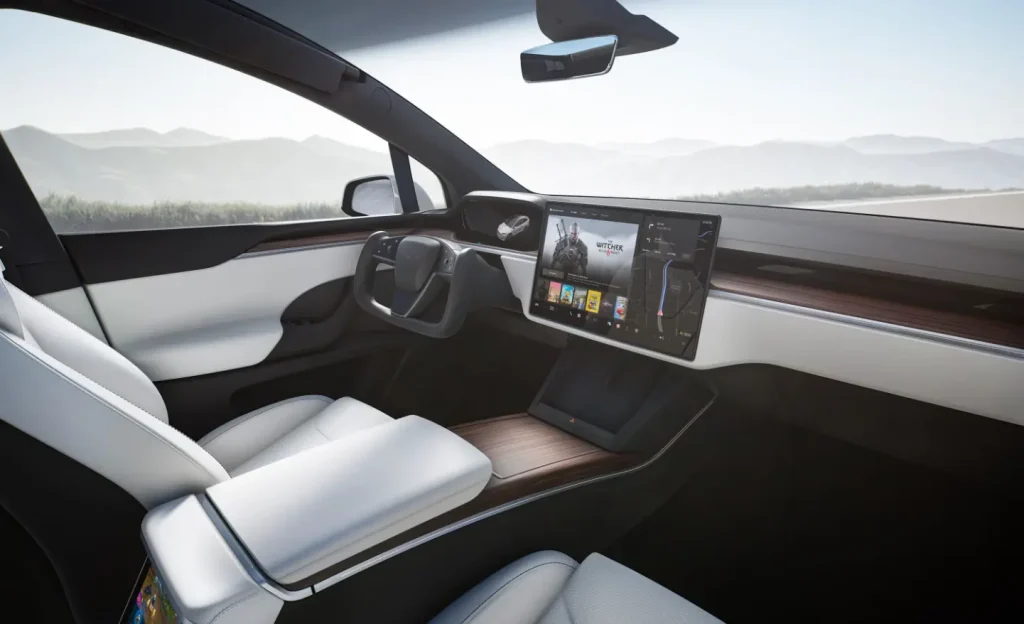
Tesla’s Model X lineup offers two configurations designed to meet different needs: the Long Range AWD and the Plaid. While both share similar battery architecture, their performance and motor setups differ significantly.
Trim Comparison (Performance Specs)
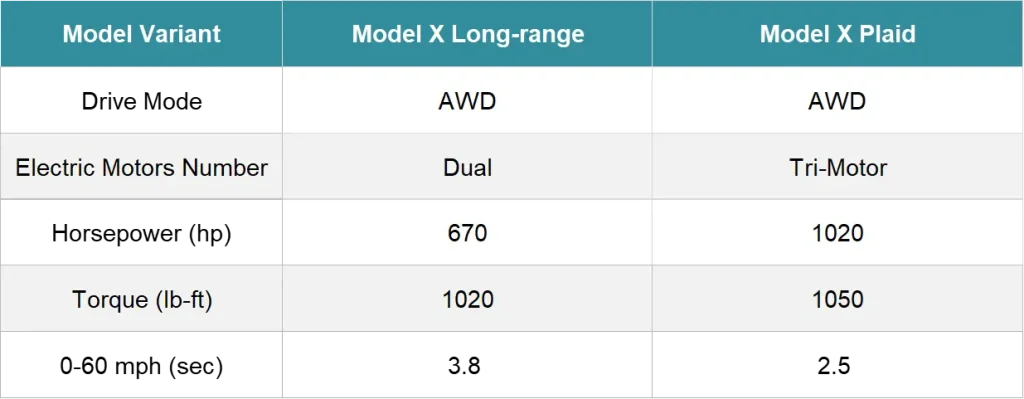
The Long Range AWD focuses on maximizing efficiency and range, while the Plaid trim pushes Tesla’s tri-motor powertrain to deliver record-breaking acceleration.
Both trims provide instant torque and all-wheel-drive traction. The Long Range AWD hits 0–60 mph in about 3.8 seconds, while the Plaid achieves this in roughly 2.5 seconds, making it one of the quickest SUVs ever made.
2. Battery Capacity and Charging Capabilities
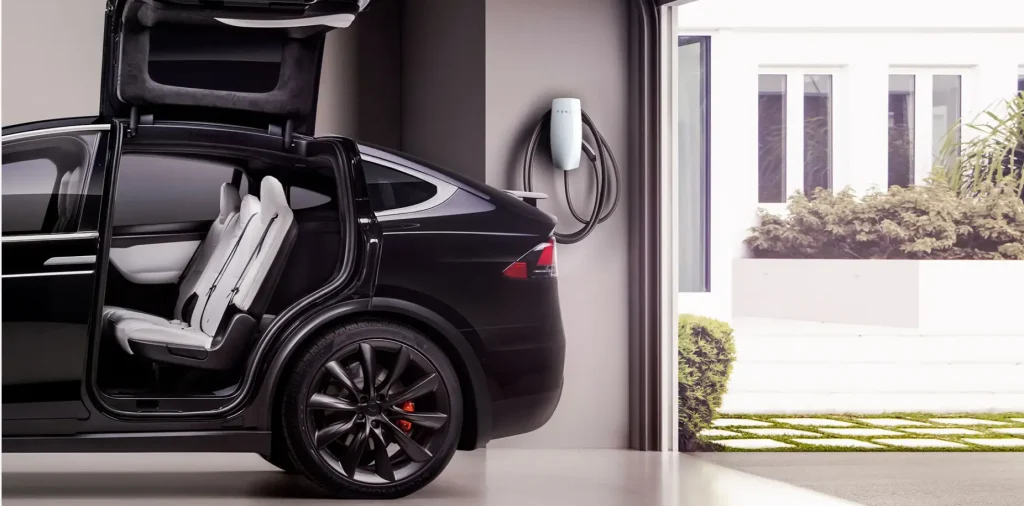
The Model X features Tesla’s latest high-density lithium-ion battery pack with a nominal capacity of around 100 kWh (about 95 kWh usable). This allows both trims to cover impressive distances on a single charge — the Long Range AWD offering the best range, and the Plaid trading a small portion for extra performance.
Battery & Charging Specs:

- Long Range: 100 kWh | EPA range: 352 miles | Max Charging: 11.5 kW (AC) / 250 kW (DC)
- Model X Plaid: 100 kWh | EPA range: 335 miles | Max Charging: 11.5 kW (AC) / 250 kW (DC)
Both trims support up to 250 kW DC fast charging on Tesla’s Supercharger V3 and V4 networks. For home charging, the onboard AC charger supports up to 11.5 kW. The Model X uses Tesla’s NACS (North American Charging Standard) port. However, to connect with most third-party chargers (which use CCS1 ports), you’ll need a CCS-to-NACS adapter.
3. Can a Tesla Charge in 30 Minutes?
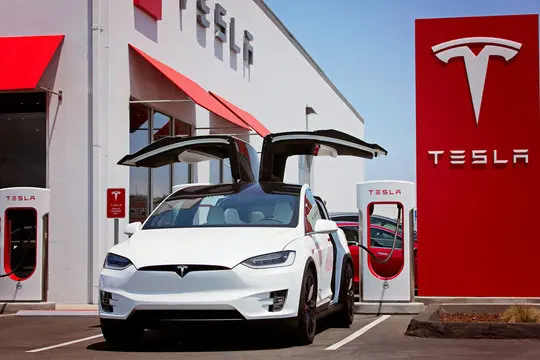
A common question among Tesla Model X owners is: “Can a Tesla Model X charge in 30 minutes?”
The answer is YES — but only using DC fast charging. With a Tesla Supercharger V3 (250 kW), the Model X can charge from 15% to 80% in about 25 minutes, depending on conditions.
However, home chargers are limited to 11.5 kW, making a 30-minute full charge impossible with AC charging. Level 2 home charging is best for overnight use.
Tesla model X Charging Time Estimates (Level 2 & DC Fast Charge)

Level 2 Charging (NEMA 14-50)

At home, a Level 2 charger provides up to 30 miles of range per hour, while Level 1 (NEMA 5-15) offers a much slower solution — more suitable for emergencies.
We always recommend installing a NEMA 14-50 outlet for efficient home charging.
DC Fast Charging (Supercharger / CCS1)

On a 250 kW DC fast charger, the Model X can gain 200 miles of range in about 15 minutes under ideal conditions.
4. How Much Does It Cost to Charge a Tesla Model X?
Charging costs vary depending on where and how you charge. At home, you pay local electricity rates, while public chargers often include network fees.
Average Electricity Cost by U.S. Energy Information Administration:
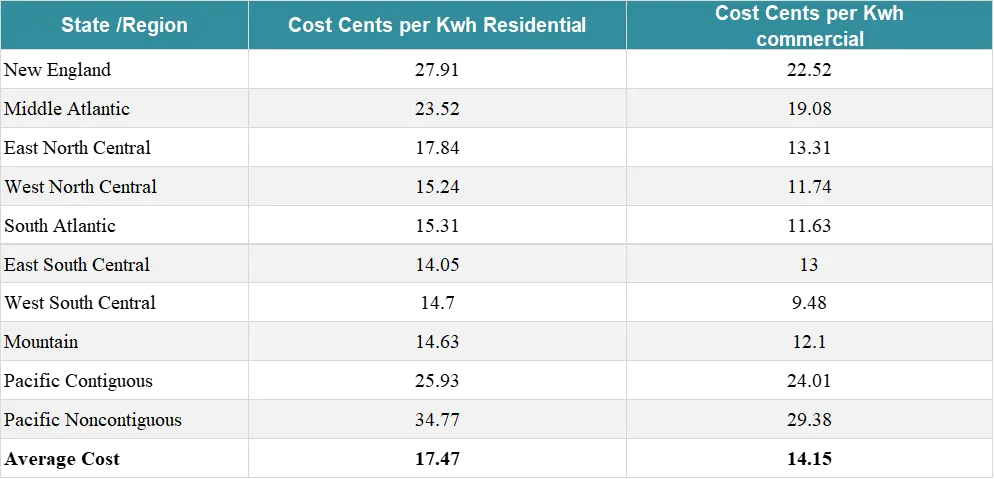
- Average Residential Rate: $0.175 per kWh
- Average Commercial Rate: $0.14 per kWh
Although the average commercial rate is about $0.14/kWh, the actual price charged by Charging Network Operators (CPOs) is typically higher.
For instance, user reports indicate that ChargePoint public AC chargers often cost around $0.20/kWh or more; While Tesla Supercharger rates average $0.25/kWh, reaching up to $0.40–$0.50/kWh in some regions. This means the real Tesla Model X Supercharger charging cost can vary significantly based on location and demand. In addition, Tesla may apply congestion or idle fees during peak times, which can further increase the total cost of charging.
Charging Cost Comparison (Home vs Public)

A full home charge (100 kWh battery) costs roughly $17–$18, depending on your local rate.

Superchargers are faster but more expensive — The Tesla Model X Supercharger charging cost usually ranges between $0.30–$0.50 per kWh, or $35–$45 for a full charge.
5. FAQs
How long does it take to charge a Tesla Model X at home?
Using a Level 2 home EV charger (240V), it takes about 9–12 hours for a full charge.
Does the Model X support Level 1 charging?
Yes, it does — though it’s extremely slow and best used for emergencies.
How to Charge a Tesla Model X using a home level 2 charger?
Simply connect your NACS charger to the vehicle’s charge port. The Level 2 setup provides up to 30 miles of range per hour and usually takes 9–12 hours for a full charge, making it the most convenient and cost-effective option for overnight charging.
Can I use a CCS charger for Model X?
Yes — with a CCS-to-NACS adapter, you can charge at most third-party DC fast-charging stations.
How much does it cost to charge a Tesla Model X?
At home, about $17 per full charge; at a public DC charging Station, around $35–$45.
What’s the Tesla Model X Supercharger charging cost per full charge?
The Tesla Model X Supercharger charging cost typically ranges between $35 and $45 for a full 100 kWh battery, depending on the station’s per-kWh rate and regional electricity prices. Rates can vary slightly based on the time of day and location, with some Supercharger stations offering lower off-peak pricing.
6. Conclusion
This Tesla Model X charging guide covers everything from trims and battery specs to charging speeds and costs, helping owners better understand how to charge a Tesla Model X efficiently in any situation. Both the Long Range AWD and Plaid trims support fast, flexible charging, whether at home or on the road.
With up to 250 kW DC Supercharging, 9.6-11.5 kW AC home charging, and compatibility with both NACS and CCS networks, the Model X makes powering up simple anywhere you go — providing a clear example of how to charge a Tesla Model X safely and effectively.
Home charging remains the most economical and convenient option, while Superchargers are ideal for quick top-ups during long trips.
No matter how to charge a Tesla Model X, it offers the perfect balance of performance, efficiency, and convenience for families and long-distance travelers alike.
